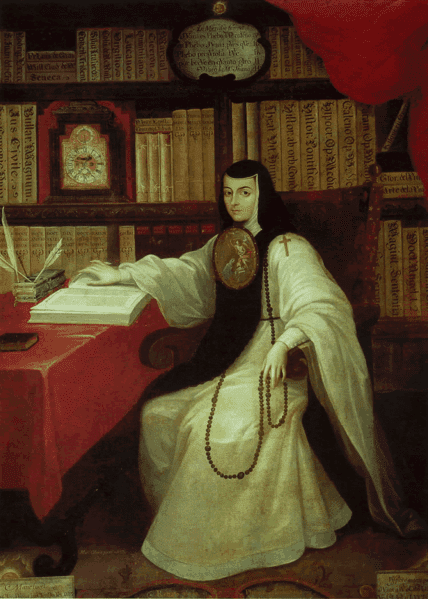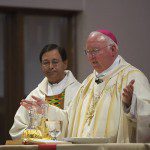
My dearest friends,
I was browsing through a collection of poems written by one of the greatest writers in American history this evening and thought I’d share this one with you. I typed it out – hoping the autocorrect wouldn’t change the Spanish. I then provided a draft translation for you. I hope you can read Spanish and understand the archaic vocabulary so that you don’t have to rely on my translation. I didn’t spend more than a minute wondering if a translation could be found online, as I only thought to do so after I produced my own. Let’s learn more about the great artistic expression coming out of America – latin and hispanic. Back to this and other greats soon.
Peace to you.
A la encarnacion
Escuchen, qué cosa, y cosa
tan maravillosa aquesta:
un marido sin mujer,
y una casada doncella.
Un padre, que no ha engendrado
a un Hijo, a quien otro engendra,
un Hijo mayor que el padre,
y un casado con pureza.
Un hombre, que da alimentos
al mismo que lo alimenta;
cría al que crió, y al mismo
que lo sustenta, sustenta.
Manda a su propio Señor
y a su Hijo Dios respeta;
tiene por ama una esclava
y por esposa una reina.
Celos tuvo y confianza
seguridad y sospechas,
riesgos y seguridades,
necesidad y riqueza.
Tuvo, en fin, todas las cosas
que pueden pensar buenas;
y es, en fin, de Maria esposo
y de Dios, padre en la tierra.
– Sor Juana Inés de la Cruz
(12 noviembre 1651-17 abril 1695)
My draft translation – if you find a decent one online or have corrections to suggest, let me know:
To the Incarnation
Listen to, what a thing, what a thing
as marvelous as this:
a husband without a wife,
and a married virgin.
A father who has not begotten
a Son, begotten by an other,
a Son greater than the father,
and a married man with purity.
A man, who feeds
the one who feeds him;
nurturing the one who nurtured, and to the same one
who sustains, sustains.
Commanding his own Lord
and respecting God, his Son;
As the keeper of his house, he has a slave,
and as his wife, a queen.
He had jealousies and confidence
certainty and suspicions,
risks and reassurances,
need and wealth.
He had, in the end, all things
you may think good;
which is, in the end, to be of Mary a husband
and to be of God, a father on earth.
– Sor Juana Inés de la Cruz
12 November 1651-17 April 1695
Mexico City
Get a short intro on Sor J. Inés de la Cruz here.
Until next time,
Keith Michael Estrada












